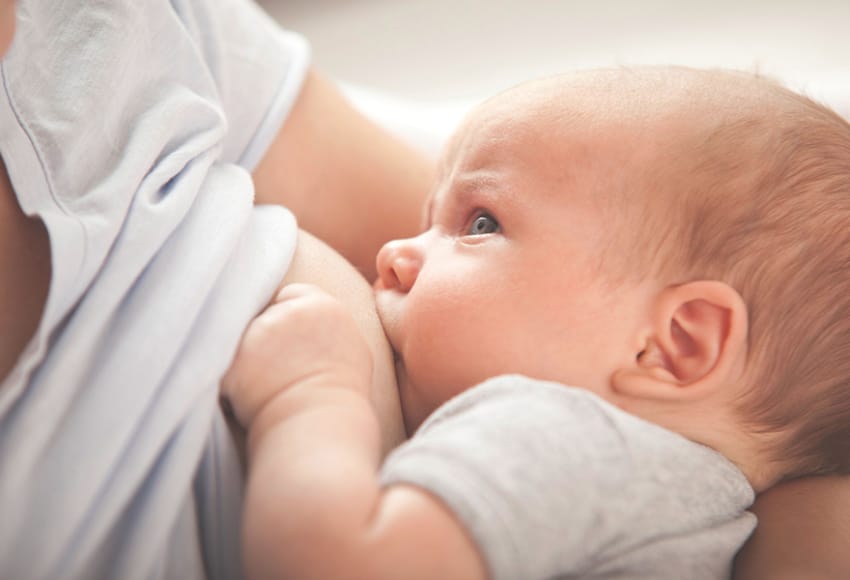Proteins. We know they’re a big deal for us adults. But for babies who need to grow and develop at an intense rate, they’re an even bigger deal. Protein is essential to build muscle, bone and blood, and to form enzymes and hormones. There are more than 1000 proteins in breast milk1 that help your little one grow, activate their immune system, and develop and protect the neurons in their brain. The beauty of breast milk is that it contains just the right quantity and quality of protein to help your baby to grow at a steady rate.2
Amino acids are often called the ‘building blocks’ of protein. We need 20 amino acids, which we get from eating foods with protein. Some of these amino acids are essential because the body cannot make them, so we need a steady supply. What’s great about human milk protein content is that it’s rich in these essential amino acids, helping babies to grow and develop. There are two types of protein in human milk: whey protein and casein protein. Whey protein is easier to digest for new tummies, which is probably why breast milk contains more whey than casein protein2.
Breast milk protein is also dynamic, which means the levels adapt over time – in the early days when the thick sticky milk, colostrum, is produced, the protein levels are super concentrated. Then, while baby’s tummy is still teeny, the transitional milk that comes in for the first few weeks will still contain high levels of protein.
In later weeks and months, the protein levels decrease as baby’s rate of growth gets slower and steadier. This means that breastfed babies get only what they need, when they need it. It also means they grow at the right pace, which helps reduce their risk of becoming overweight later in life.3
So, while there may be loads more ingredients in mother’s milk, it’s safe to say that protein plays a major part in making breast milk the best milk to help little ones grow big and strong.















